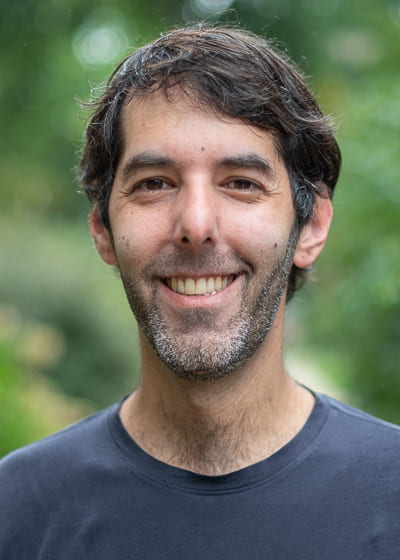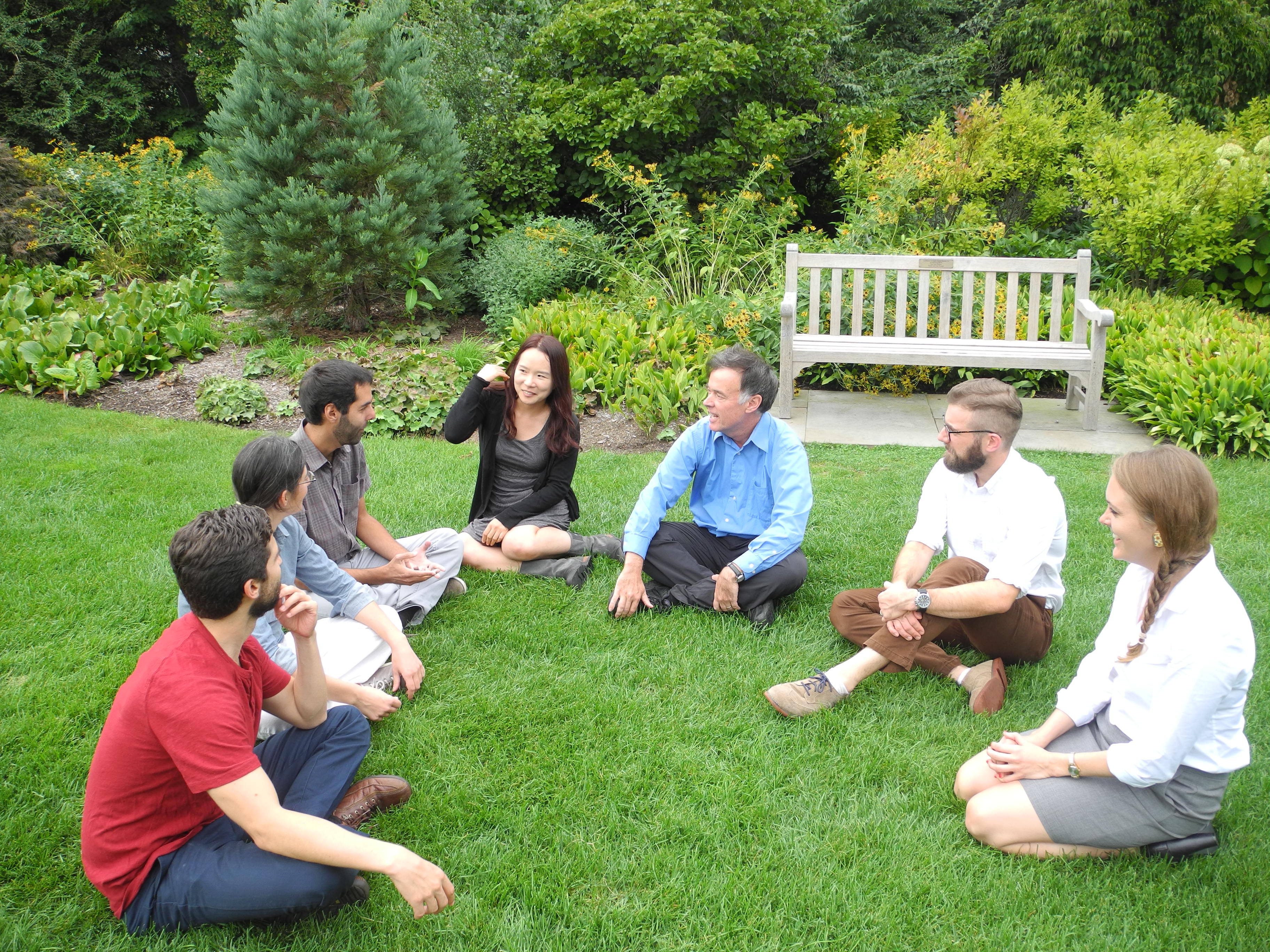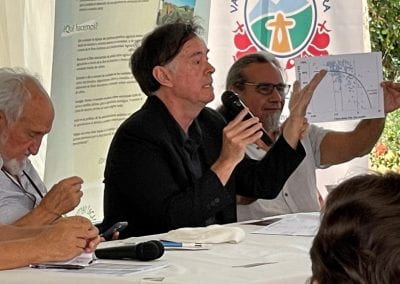Karl Zimmerer
Karl S. Zimmerer is professor of Environment and Society Geography and directs the GeoSyntheSES Lab at Pennsylvania State University. Karl is the founding and current chief editor of Frontiers in Sustainable Agriculture-Urban Agriculture. Current research projects by Karl and his collaborators in the GeoSyntheSES Lab and elsewhere are focused on biodiversity in land use and food systems using nexus-type agrobiodiversity and food-nutrition models with migration (including immigrant farmworker populations), urbanization, and climate change; spatial landscape designs; and cultural, socioeconomic, and historical analysis. Karl’s research encompasses landscape and territorial initiatives for sustainability, seed networks, links of agrobiodiversity to multi-scale global changes, and the emergence of new urban/periurban and rural agri-food systems ecologies. Karl’s theoretical interests focus on human-environment interactions and nature-society relations at the nexus of dynamic, multi-scale processes and patterns, including change dynamics, embedded in issues of transformative resilience, sustainability, and justice. His recent lead-author publications appear as articles and chapters in Agricultural Systems (2022), Frontiers in Sustainable Food Systems-Agroecology (2022), Geoforum (2022) One Earth (2021), Frontiers in Sustainable Food Systems-Urban Agriculture (2021), Los Andes y Los Alimentos del Futuro: 50 Andean Future Foods (2021), Food Security (2020), Land (2020), Journal of Latin American Geography (2020), ReVista: Harvard Review of Latin America (2020), and Anthropocene (2019) as well as the book Agrobiodiversity: Integrating Knowledge for a Sustainable Future (MIT Press, 2019). Click here for a copy of Karl’s current CV and here for a copy of his brief bio.

Ramzi M. Tubbeh
Ramzi M. Tubbeh is a postdoctoral scholar at the GeoSyntheSES lab with expertise in political ecology, science and technology studies, and postcolonial studies. His areas of research include water governance, conservation, agrobiodiversity, climate change, and rural livelihoods, with a geographical focus on the tropical Andes. Some of Ramzi’s recent work focused on indigenous communal land titling and forest conservation programs; the impacts of large hydraulic infrastructures and associated water governance systems on agricultural landscapes and livelihoods; and the relationship between community-based irrigation systems, landscape knowledge, and smallholding farmers’ resilience. Now at the GeoSyntheSES lab, Ramzi participates in various research projects on agrobiodiversity, food security, nutrition, smallholding farmers’ resilience and colonial agrarian systems. Click here to see Ramzi’s CV.
Current and Transitioning Lab Members

Ramzi Tubbeh, Postdoctoral scholar (current): Water governance, conservation, agrobiodiversity, climate change, livelihoods, Peru
Zach Goldberg, Ph.D. (current): Agroecology, political ecology, FEW nexus and justice, solar development on farmland
Marie-Louise Ryan, Ph.D. (current): Agrobiodiversity, rice, migration, Nepal
Recent Lab Members
Gabriel Tamariz, Ph.D.: Agrobiodiversity, violence, drug landscapes, Mexico
Megan Dwyer Baumann, Ph.D.: Water resources, irrigation, infrastructure, seed systems, feminist theory, Colombia
Sara Cavallo, Ph.D.: Agri-food systems, development, the agroecology of non-human actors, Uganda
Emma Gaalaas Mullaney, Ph.D.: Gender politics and maize, Mexico
Yooinn Hong, Ph.D.: Agriculture-forest landscape interactions, agrobiodiversity, conservation, East Asia
Cameron Franz, undergraduate: food systems, political ecology, resiliency, value chains
Russell Hedberg II, Ph.D.: Agroecology, local food systems, foraging/ethnobotany, human-environment theory, social-ecological sustainability
Nathan Clay, Ph.D.: Food systems, sustainability transformation, livelihood adaptation, political ecology
Legacy Lab Members (including University of Wisconsin–Madison)
Martha Bell, Ph.D. (Penn State): The governance of food technology and environmental resource flows: Connecting mills, water, wheat, and people in colonial Lima, Peru (1535-1700)
Fernando L. González, Ph.D. (UW-Madison): Socio-environmental dynamics of biological invasions: the case of kikuyu grass (Pennisetum clandestinum) in the Cotahuasi Valley, southern Peru
Ryan Galt, Ph.D. (UW-Madison): Political ecology and the pesticide paradox: markets, pesticide use, and human-environment relations in Costa Rican agriculture
Eric Carter, Ph.D. (UW-Madison): Disease, science, and regional development: malaria control in northwest Argentina, 1890-1950
Christopher Rosin, Ph.D. (UW-Madison): The political ecology of MERCOSUR/L: local knowledge and responses to a competitive market
Christian Brannstrom, Ph.D. (UW-Madison): After the forest: environment, labor, and agro-commodity production in southeastern Brazil
Antoinette WinklerPrins, Ph.D. (UW-Madison): Between the floods: soils and agriculture on the Lower Amazon Floodplain, Brazil

